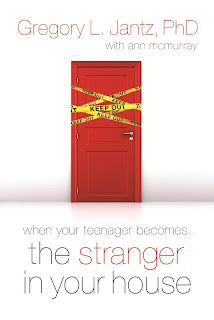
Learning to Recognize and Overcome Teenage Depression
Dr. Gregg Jantz answers parents’ hardest questions about teenage depression.
He’s in his room for days at a time and barely responds when I talk to him. She’s teary every day, one minute demanding I tend to her needs and the next minute demanding I leave her alone. What’s going on with your teenager? Is it just the ups and downs of adolescence, or is it something more? In Dr. Gregg Jantz’s new book, The Stranger in Your House, parents will learn to distinguish between normal adolescent behavior and clinical depression.
Few things strike fear into the hearts of parents more than the approaching adolescence of their children. They have heard horror stories from family and friends about what it was like with their kids and dread the unknown. Will their happy-go-lucky child turn into some sort of a sullen monster? Will the childhood skirmishes of yesterday turn into open teenage warfare?
The roller coaster of adolescence is so prevalent, so stereotypical in some ways, that it has developed into a sort of cultural shorthand. Just say the words “teen angst” to a group of parents of adolescents and heads will nod. It’s a universal catch-phrase for anything from explosive anger to all-is-lost despair. Even kids who weather their teenage years with relative calm still undergo their seasons of adolescent squalls. With all of that swirling around in our heads, how can we know if our teen’s season of discontent is just that or something more?
Depression has the ability to derail a teenager’s progress toward healthy adulthood while confusing and frustrating parents. With years of experience, Dr. Jantz will answer the hard questions about the most critical season of your child’s life:
Is this “just a phase,” or is it clinical depression?
How do hormones affect my teen’s behavior—and what can I do about it?
How can I get help when I see the warning signs of suicidal thoughts?
Why does my teenager seem to need me some days and hate me other days?
How can I be a source of peace in my child’s life, especially when I feel stormy too?
The Stranger in Your House will help parents to push beyond the closed door that is adolescence and open the door to hope.